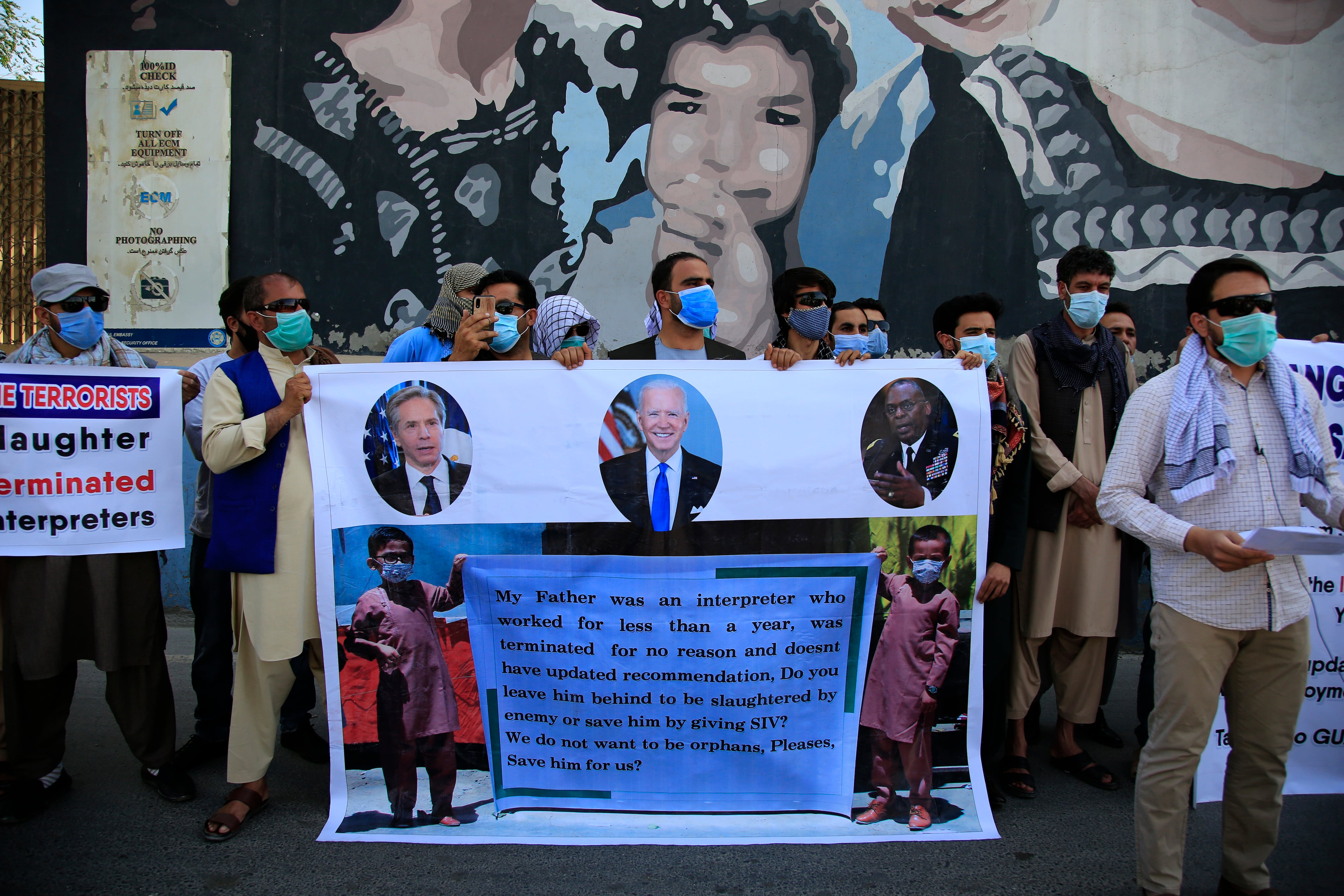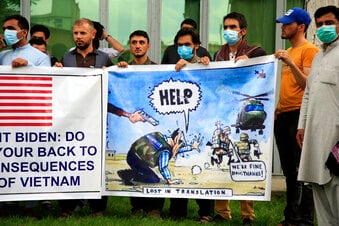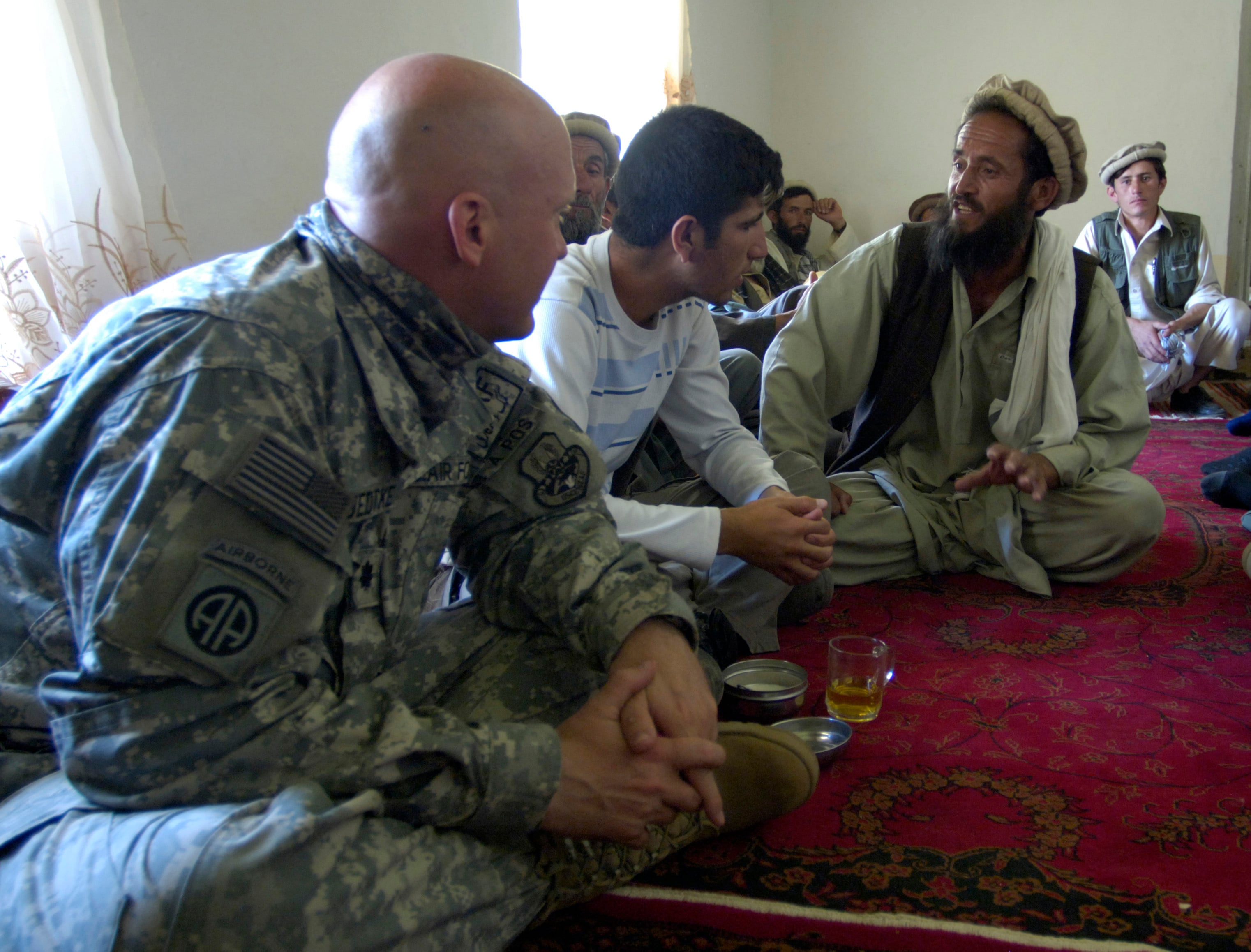The Army is in the process of moving soldiers out of on-post hotels and temporary lodging to make room for thousands of Afghan visa seekers entering temporary housing at Fort Lee, Virginia, post officials confirmed.
A group of 700 Afghans who worked for the U.S. government and roughly 1,800 family members fleeing the Taliban’s advance are being housed at Fort Lee, south of Richmond, where they’ll wait before being resettled elsewhere.
“That process, to prepare for the arrival of Afghan special immigrants and their family members, began this weekend and it will continue throughout next week,” said Jefferson Wolfe, a Fort Lee spokesperson. “To fulfill the State Department’s request, and to provide our Afghan partners and their family members with adequate accommodations and suitable privacy, the Department of Defense is temporarily relocating some of the on-base population located in IHG Army Hotels and elsewhere off Fort Lee.”
But some of the relocated troops, though happy to make room for Afghan evacuees, are concerned the Army isn’t doing enough to ensure they are able to eat and commute to work. Many of the troops are brand new soldiers attending months-long Basic Officer Leader Courses.
“There’s no issue” with making room for the former interpreters, said one displaced soldier, who spoke with Army Times on condition of anonymity because their chain of command threatened retaliation for speaking to the media.
RELATED

“The general consensus…[among] everyone being relocated is we fully support the Afghan refugees,” the soldier said.
Their issue is with how far away they’ve been moved, and with the Army’s failure to assist troops on temporary duty who were not authorized to bring their cars or obtain a rental vehicle, the soldier said.
“I just relocated and it’s going to be about a 60-mile commute a day,” the soldier said, noting that his travel orders haven’t been adjusted to authorize mileage payments.
All of the hotels for relocated soldiers are “within a 50 mile radius of Fort Lee,” Wolfe, the installation spokesperson, said. He said hotel availability and “amenities” played into the calculus as well.
Wolfe said Fort Lee “is implementing a transportation plan and will provide transportation at no cost to move those relocated to and from base … if [soldiers] do not have transportation/mileage authorized on their current orders, the government will provide transportation.”

The transportation plan, according to the displaced soldier, will be one bus round trip per-day for all of the soldiers relocated to their Richmond-area hotels.
“What happens when I’m off duty hours and I need to pick up some things from clothing and sales at the [Post Exchange] but the bus leaves five minutes after last formation?” asked the soldier.
“That doesn’t include taking you to go get [food],” said the relocated soldier. “There’s no food places [or grocery stores] within walking distance around here…so now [we’re] stuck with getting food delivery or having someone that’s willing to pay out of pocket…to drive [us] around to pick up food or take [us] to the store.”
RELATED

Many National Guard and Army Reserve soldiers completing temporary duty orders at Fort Lee are not authorized to bring their vehicles or obtain rental cars for the duration of their training if the Army determines the cost of a flight to be less than driving.
Approximately a third of the soldiers enrolled in the four-month-long Basic Officer Leader Course are in that situation, according to the relocated soldier. When living on-post, those soldiers are able to easily access food.
“DOD is aware of the unique circumstances of the relocated students,” said Wolfe. “The installation is still refining its transportation plan to maximize flexibility and options and minimize impact in order to meet students’ needs.”
Wolfe said the relocation won’t “impact Fort Lee’s mission to train, educate and develop the Army’s sustainment professionals.”
The displaced soldier said he and his peers are “just asking to be taken care of here.”
“[The Army’s] adding on a lot of mileage to drive back and forth to get meals, which raises costs. [The Army’s] asking us to help out, and carpool, and be good soldiers and battle buddies — which I’m all for,” he said. “But yet [the Army’s] saying in the same sentence, in the same breath, we’re not going to pay you any extra money.”
Davis Winkie covers the Army for Military Times. He studied history at Vanderbilt and UNC-Chapel Hill, and served five years in the Army Guard. His investigations earned the Society of Professional Journalists' 2023 Sunshine Award and consecutive Military Reporters and Editors honors, among others. Davis was also a 2022 Livingston Awards finalist.





